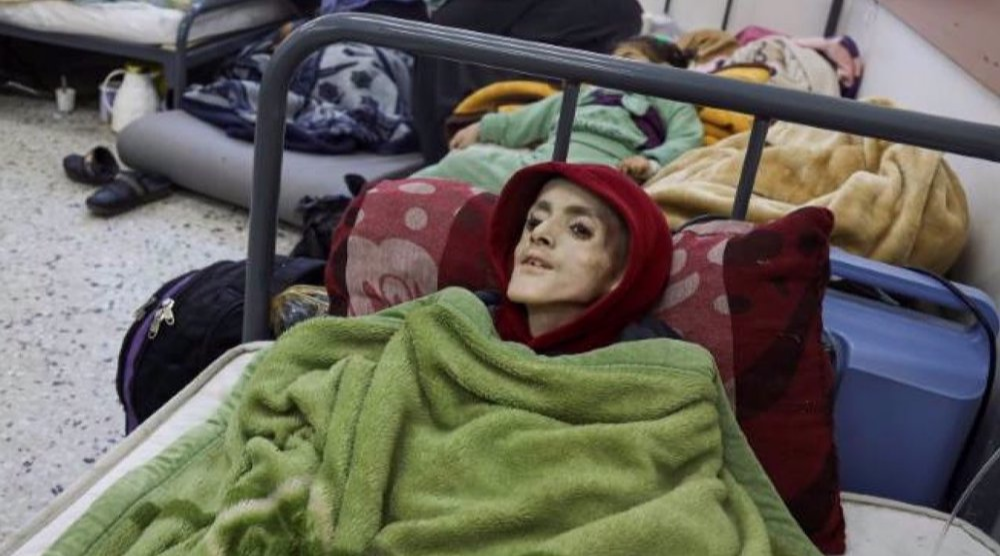
The file photo shows emaciated 10-year-old Palestinian child, Yazan al-Kafarneh, on a hospital bed at Al-Awda clinic in Rafah, who later died from severe malnourishment and insufficient healthcare. (File photo by AFP)
Geneva, June 12 (RHC)-- A recent analysis shows that if the Group of Seven (G7) countries allocated just 2.9 percent of their annual military spending, they could effectively solve the world food debt crisis.
The revelation by Oxfam comes ahead of the G7 Summit in Borgo Egnazia, Italy, which estimates that the G7’s fair share of debt relief efforts for the world’s poorest countries is equivalent to $4 billion, for a total of $35.7 billion.
“Governments are finding their pockets run deep to fund war today, but when it comes to stopping starvation they are suddenly broke,” said Oxfam International’s Head of Inequality Policy Max Lawson.
“We’re talking about a small commitment with the potential for huge impact. Imagine a world where no one goes to bed hungry and where countries in the Global South can put money into public schools and hospitals instead of debt interest payments. The G7 not only has the means, but the moral and strategic imperative to make this happen,” said Lawson.
More than 281 million people are currently experiencing the devastating effects of extreme hunger and malnutrition, according to a UN report. Gaza is confronted with a dire hunger crisis, which ranks among the most severe worldwide, primarily attributed to Israel's continuous assault and blockade on the region.
Oxfam also urged the G7 to reaffirm its call on Israel to comply with the recent decision of the International Court of Justice (ICJ) by ceasing aggression in Rafah and allowing entry of humanitarian assistance into Gaza.
Nations have a legal obligation under the Genocide Convention and international humanitarian law to utilize all available political, economic, and military measures to prevent genocide. This encompasses the immediate cessation of arms and munitions exports that are being used in war crimes or aid in the occurrence of genocide. The responsibility to prevent genocide extends beyond mere complicity as states are required to take action.
“The G7’s collective failure has basically given the Israeli military a free pass to commit terrible atrocities against Palestinian people. G7 leaders must do everything in their power to make sure there is an immediate and permanent ceasefire to stop the death and destruction. They also need to ensure full and permanent access of humanitarian aid through all ground crossings, and the release of all hostages and unlawfully detained Palestinian prisoners,” Lawson said.
"The G7 must also deploy all diplomatic efforts to stop further escalation in Lebanon and Yemen —should regional instability escalate into all-out war, the devastation will spare no one.”
Oxfam's research reveals that G7 nations have a debt of $15 trillion to low- and middle-income countries for aid and climate funding, yet they are pressuring developing countries to pay $291 million daily in debt repayments and interests.

